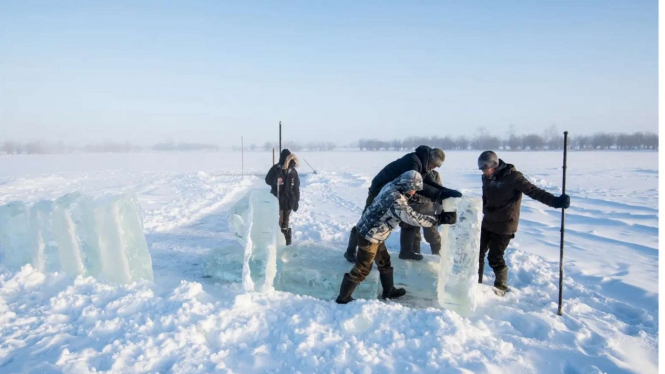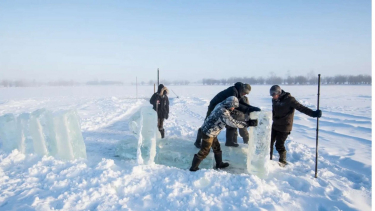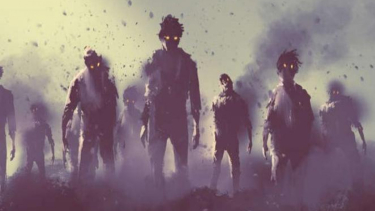- nypost.com
VIVA – Not yet finished with the Covid-19 pandemic, the world is shocked again by a new virus that has the potential to become a pandemic. Scientists from France have founded a zombie virus that has been under a frozen lake in Russia for 48,500 years. This oldest virus is named "Pandoravirus Yedoma" from the mythological character, Pandora.
The new research was led by microbiologist Jean-Marie Alempic from the French National Center for Scientific Research, as reported by Science Alert, on Monday, December 5, 2022.
"This virus is feared to be more dangerous than cases of plant, animal, or human disease caused by the resurgence of unknown ancient viruses," the study stated.
Ilustrasi zombie.
- Istimewa
According to the preliminary paper, global warming is causing much of the permafrost, or permanently frozen ground that covers a quarter of the Northern Hemisphere, to permanently thaw and unfreeze. It has the alarming effect of "releasing organic matter that has been frozen for up to a million years", including these potentially dangerous pathogens.
"Part of this organic matter also consists of revived cellular microbes (prokaryotes, unicellular eukaryotes) as well as viruses that have remained dormant since prehistoric times," the researchers remarked.
Aix-Marseille University Professor Jean-Michel Claverie, the co-author of the study, issued a warning to medical authorities about the lack of significant updates on "live" viruses in permafrost since the initial studies in 2014 and 2015.
"It incorrectly suggests that such events are rare and that 'zombie viruses' are not a public health threat," the research team wrote in their findings.
For studying these “New” organisms, scientists, perhaps paradoxically, revived some of the so-called “Zombie viruses” from the Siberian permafrost. This record age for a frozen coming back “alive” has the potential to infect other organisms. It breaks the previous record held by a 30,000-year-old virus discovered by the same team in Siberia in 2013.
The new strain is one of 13 viruses described in the study, each of which has its genome, Science Alert reports. While Pandora Virus was found under the bottom of a lake in Yukechi Alas in Yakutia, Russia, others are found everywhere from mammoth fur to the intestines of Siberian wolves.
After studying the living cultures, the scientists found that all "zombie viruses" are potentially contagious, and therefore a "health threat". They postulate that we could see more COVID-19-style pandemics in the future as thawing permafrost continues to release long-dormant viruses like Captain America's microbes.
Ilustrasi: perilaku zombie pada penderita Sindrom Cotard
- U-Report
"It is therefore legitimate to contemplate the risk of ancient virus particles remaining infectious and returning to circulation with the thawing of ancient permafrost layers," they write.
Unfortunately, this is a vicious cycle as the organic matter released by melting ice breaks down into carbon dioxide and methane, further increasing the greenhouse effect and accelerating thaw.
The newly unfreeze virus may only be the tip of the epidemiological iceberg as there are likely more hibernating viruses yet to be discovered. More research is needed to determine the transmission rates of these unknown viruses when exposed to light, heat, oxygen, and other outdoor environmental factors.
This is not the first long-dormant organism to be "awakened from its slumber" greeting tens to millions of years in ice. In June 2021, Russian scientists revived a "zombie" worm that had been frozen for 24,000 years in the Arctic.




























